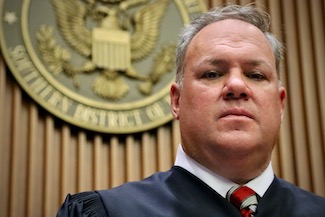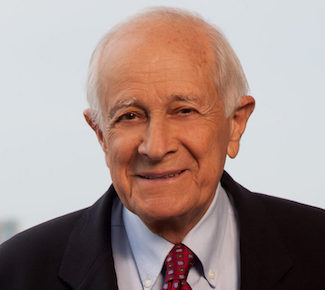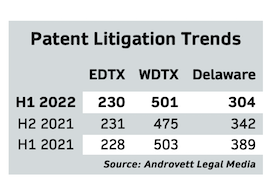Cineworld Hires Kirkland, Jackson Walker, Alix Partners for Chapter 11
The UK-based movie theater chain has filed for bankruptcy protection in the Southern District of Texas. The case has been assigned to Bankruptcy Judge Marvin Isgur in Houston.
Free Speech, Due Process and Trial by Jury
Mark Curriden is a lawyer/journalist and founder of The Texas Lawbook. In addition, he is a contributing legal correspondent for The Dallas Morning News.
Mark Curriden is a lawyer/journalist and founder of The Texas Lawbook. In addition, he is a contributing legal correspondent for The Dallas Morning News.
Mark is the author of the best selling book Contempt of Court: A Turn-of-the-Century Lynching That Launched a Hundred Years of Federalism. The book received the American Bar Association’s Silver Gavel Award and numerous other honors. He also is a frequent lecturer at bar associations, law firm retreats, judicial conferences and other events. His CLE presentations have been approved for ethics credit in nearly every state.
From 1988 to 1994, Mark was the legal affairs writer for the Atlanta Journal-Constitution, where he covered the Georgia Supreme Court and the U.S. Court of Appeals for the Eleventh Circuit. He authored a three-part series of articles that exposed rampant use of drug dealers and criminals turned paid informants by local and federal law enforcement authorities, which led to Congressional oversight hearings. A related series of articles by Mark contributed to a wrongly convicted death row inmate being freed.
The Dallas Morning News made Mark its national legal affairs writer in 1996. For more than six years, Mark wrote extensively about the tobacco litigation, alleged price-fixing in the pharmaceutical industry, the Exxon Valdez litigation, and more than 25 cases before the Supreme Court of the United States. Mark also authored a highly-acclaimed 16-part series on the future of the American jury system. As part of his extensive coverage of the tobacco litigation, Mark unearthed confidential documents and evidence showing that the then Texas Attorney General, Dan Morales, had made a secret deal with a long-time lawyer and friend in which the friend would have profited hundreds of millions of dollars from the tobacco settlement. As a direct result of Mark’s articles, the U.S. Department of Justice opened a criminal investigation, which led to the indictment and conviction of Mr. Morales.
For the past 25 years, Mark has been a senior contributing writer for the ABA Journal, which is the nation’s largest legal publication. His articles have been on the cover of the magazine more than a dozen times. He has received scores of honors for his legal writing, including the American Bar Association’s Silver Gavel Award, the American Judicature Society’s Toni House Award, the American Trial Lawyer’s Amicus Award, and the Chicago Press Club’s Headliner Award. Twice, in 2001 and 2005, the American Board of Trial Advocates named Mark its “Journalist of the Year.”
From 2002 to 2010, Mark was the senior communications counsel at Vinson & Elkins, a 750-lawyer global law firm.
Mark’s book, Contempt of Court, tells the story of Ed Johnson, a young black man from Chattanooga, Tenn., in 1906. Johnson was falsely accused of rape, railroaded through the criminal justice system, found guilty and sentenced to death – all in three weeks. Two African-American lawyers stepped forward to represent Johnson on appeal. In doing so, they filed one of the first federal habeas petitions ever attempted in a state criminal case. The lawyers convinced the Supreme Court of the United States to stay Johnson’s execution. But before they could have him released, a lynch mob, aided by the sheriff and his deputies, lynched Johnson. Angered, the Supreme Court ordered the arrest of the sheriff and leaders of the mob, charging them with contempt of the Supreme Court. It is the only time in U.S. history that the Supreme Court conducted a criminal trial.
You can reach Mark at mark.curriden@texaslawbook.net or 214.232.6783.
The UK-based movie theater chain has filed for bankruptcy protection in the Southern District of Texas. The case has been assigned to Bankruptcy Judge Marvin Isgur in Houston.
Federal appellate judges almost never resign; and they never ever go back to practicing law. Gregg Costa, the Houston federal prosecutor who sent billionaire financial fraudster Allen Stanford to prison in 2012 and then was appointed to the U.S. Court of Appeals for the Fifth Circuit by President Obama, is doing both. Costa is giving up his black robe and the lifetime job security of a federal judgeship to join the Houston office of Gibson Dunn as co-lead of the firm’s global litigation and trial practice.
Costa is moving his Houston office seven blocks. His new Gibson Dunn office at is about one-tenth the size of his 3,000-square-foot suite at the federal courthouse, but he is getting a bit of a compensation boost. The Texas Lawbook talked with Costa exclusively and has the details.
The Supreme Court of Texas agreed late Friday to hear the two cases brought by electric power companies against the Electric Reliability Council of Texas that involved billions of dollars individually and could impact tens of billions of dollars at stake in thousands of lawsuits related to Winter Storm Uri. The two cases, which are unrelated to each other, are likely to be argued jointly because the same questions are at the heart of both matters: Is ERCOT a division of state government and is it immune from civil lawsuits?

As Gregg Costa neared graduation at Dartmouth College in 1994, he faced a choice: Follow his dream and go directly to law school or take a couple gap years and get a job. He chose the latter. The decision changed his life forever. Last week, Costa stepped down as a judge on the U.S. Court of Appeals for the Fifth Circuit to return to private practice, stunning nearly everyone in the legal community and left lawyers and judges asking why a 50-year-old just one step away from the U.S. Supreme Court would give up a lifetime appointment.
In an exclusive interview with The Texas Lawbook, Costa said there were a handful of reasons. At 50, he believed he needed a change. The makeup of the Fifth Circuit left the more moderate Costa in the minority on issue after issue. But Costa’s decision to leave the Fifth Circuit – like many of his biggest career choices – can be traced back to Sunflower, Mississippi, an impoverished town of 1,100 and his two years of teaching third and fourth graders.
Photo: Sharon Ferranti

Harold Kleinman, a pioneer of the modern-day corporate M&A law practice in Texas, lawyer to some of the state’s biggest businesses and a founding father of Texas Access to Justice, died Friday. He was 91.
For five decades, Kleinman was a lawyer and leader at Thompson & Knight, guiding the firm through extraordinary growth and turning it into a powerhouse in the energy sector. Bar associations, community groups, Jewish organizations and businesses honored Kleinman with award after award. In fact, the State Bar of Texas and Texas Access to Justice named its top honor for commitment to the legal profession the Harold F. Kleinman Award. “I was just a lawyer who represented clients and believed everyone deserved a fair shake under the law,” Kleinman told The Texas Lawbook in 2015. The Lawbook looks at the life and career of one of the greatest corporate lawyers in Texas history.
Rob Reedy, who has served as Porter Hedges’ managing partner for 13 years, told The Texas Lawbook that the decision is part of the firm’s leadership succession planning process.

During the past decade, 700 SMU Dedman law students have done externships at 100 corporate legal departments including Microsoft, Keurig Dr Pepper, Interstate Batteries, Liberty Mutual and Vistra Corp. “The program puts students in real-life situations where they have educational opportunities unobtainable in the classroom," SMU Dedman assistant dean Stephen Yeager, creator of the externship initiative. An extern with Keurig Dr Pepper witnessed how different flavored drinks were developed. Fluor Corporation let law students visit construction sites. Mary Kay allowed its Russian-born extern to work on a project involving Russian data privacy laws. The Texas Lawbook interviewed a half-dozen SMU alumni who did externships and are now in-house counsel.
A South Central Texas wagyu beef company filed for bankruptcy Monday in the Southern District of Texas after getting hit a year ago with a $30 million breach of contract and fraud verdict. Flatonia-based HeartBrand Holdings and its subsidiary American Akaushi Association filed for Chapter 11 citing liabilities between $10 million and $50 million and assets between $50 million and $100 million.
The four companies are supporting Harvard University and the University of North Carolina, which have been sued by Students for Fair Admissions, an organization that claims that Asian Americans are being discriminated against when colleges consider race or ethnicity as a factor in admitting students.

Since Judge Alan Albright took the federal bench in 2018, businesses and individuals have filed 2,622 lawsuits in Waco accusing others of patent infringement. New statistics show he handles 24 percent of patent disputes in the U.S. – more than any other judge. His cases proceed quickly from filing to finish. Empirical data shows plaintiffs and defendants each win about half of their trials. Judge Albright rules for defendants 90 percent of the time on summary judgment.
This week, the federal judiciary shut down Judge Albright’s patent docket and has started sending his patent cases to other judges. In an in-depth report, The Texas Lawbook looks at the allegations by some tech companies against Judge Albright, reveals new data about his caseload and provides feedback from 19 patent lawyers in Texas. FYI: They are pissed.© Copyright 2025 The Texas Lawbook
The content on this website is protected under federal Copyright laws. Any use without the consent of The Texas Lawbook is prohibited.